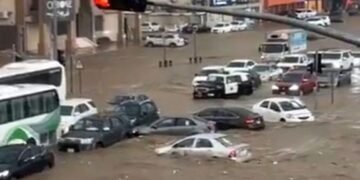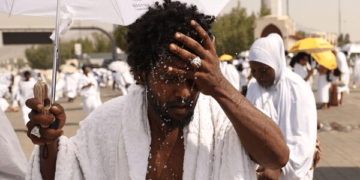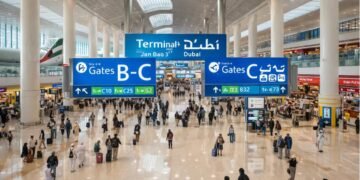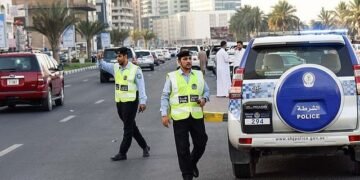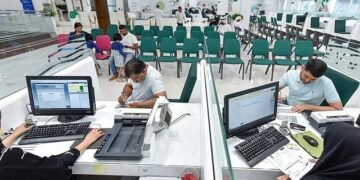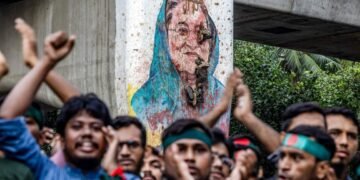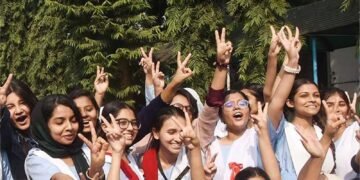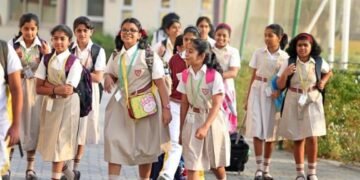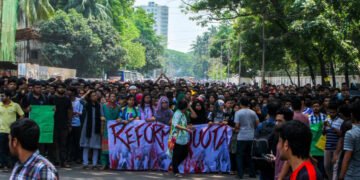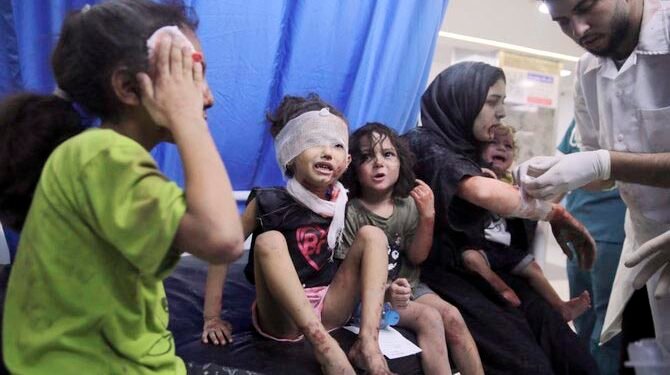As Israel bombs Gaza, UNICEF calls for unimpeded humanitarian access to enclave where half the population is below the age of 18.
The United Nations Children’s Agency (UNICEF) has decried the “staggering” number of children casualties in Gaza, where officials say Israeli bombardment has killed thousands.
Reporting that 2,360 children have been killed in less than three weeks, UNICEF called for an immediate ceasefire and sustained and unimpeded access for humanitarian assistance.
A further 5,364 children in Gaza have been injured in the “unrelenting attacks,” UNICEF added on Tuesday. More than 400 children are reportedly either killed or injured daily in the besieged Palestinian enclave, it said.
On October 7, Palestinian group Hamas launched surprise attacks on Israel, which killed more than 1,400 people. Israel’s army has since relentlessly bombed Gaza, killing at least 5,791 people. Children make up roughly 50 percent of Gaza’s population of about 2.3 million.
“The situation in the Gaza Strip is a growing stain on our collective conscience. The rate of death and injuries of children simply staggering,” said Adele Khodr, UNICEF regional director for the Middle East and North Africa.
“Even more frightening is the fact that unless tensions are eased, and unless humanitarian aid is allowed, including food, water, medical supplies and fuel, the daily death toll will continue to rise.”
Almost every child in the Gaza Strip has been exposed to deeply distressing events and trauma, marked by widespread destruction, relentless attacks, displacement, and severe shortages of daily necessities such as food, water, and medicine, UNICEF said.
he West Bank has also seen an “alarming surge in casualties”, the agency said. Twenty-eight children have been killed and at least 160 have reportedly sustained injuries.
UNICEF said 30 children were reported to have been killed in the recent violence in Israel, while dozens are still in captivity within Gaza after Hamas took about 220 people captive.
“The killing and maiming of children, abduction of children, attacks on hospitals and schools, and the denial of humanitarian access constitute grave violations of children’s rights,” said Khodr.
“UNICEF urgently appeals on all parties to agree to a ceasefire, allow humanitarian access and release all hostages. Even wars have rules. Civilians must be protected, children particularly, and all efforts must be made to spare them in all circumstances.”
UN chief Antonio Guterres also renewed calls for a ceasefire on Tuesday and said international law was being violated in the war between Israel and Hamas.
He said Palestinians “have been subjected to 56 years of suffocating occupation”, but Palestinian grievances do not justify Hamas’s attack.
At the same time, “those appalling attacks [by Hamas] cannot justify the collective punishment of the Palestinian people”, he continued.
‘The tip of the iceberg’
With the constant trauma of war and occupation, four out of five children in Gaza live with depression, grief and fear, according to a 2022 report by Save the Children. More than half of them struggle with suicidal thoughts and the trauma of witnessing the deaths of other children.
Last week, a Palestinian NGO said one child in Gaza is killed every 15 minutes in Israel’s ongoing bombardment. “We are witnessing a genocide in real time,” a spokesperson for the Defense for Children International – Palestine (DCIP) said.
Amid the war, education has been put on hold and schools are being used to shelter displaced people. Schools, like hospitals, have also suffered damage from the ongoing aerial attacks.
Israel blockaded the Gaza Strip after the Hamas attack, preventing food, fuel and regular aid from getting through. In the last week, a few dozen trucks carrying aid have been allowed in through the Rafah border crossing with Egypt, but NGOs say the supplies are not near enough.
The dire and pressing lack of water also poses grave consequences for children, UNICEF said on Tuesday, noting that most water systems have been severely affected or are nonoperational due to fuel shortages and damage to vital infrastructure.
UNICEF said fuel, which Israel has not allowed into Gaza, is of paramount importance for the operation of essential facilities such as hospitals, desalination plants, and water pumping stations. It also said neonatal intensive care units, some housing newborns in incubators, rely on mechanical ventilation, making an uninterrupted power supply a matter of life and death.
“Without humanitarian access, the deaths from attacks could be the tip of the iceberg,” said Khodr. “The death toll will increase exponentially if incubators start to fail, if hospitals go dark, if children continue to drink unsafe water and have no access to medicine when they get sick.”

